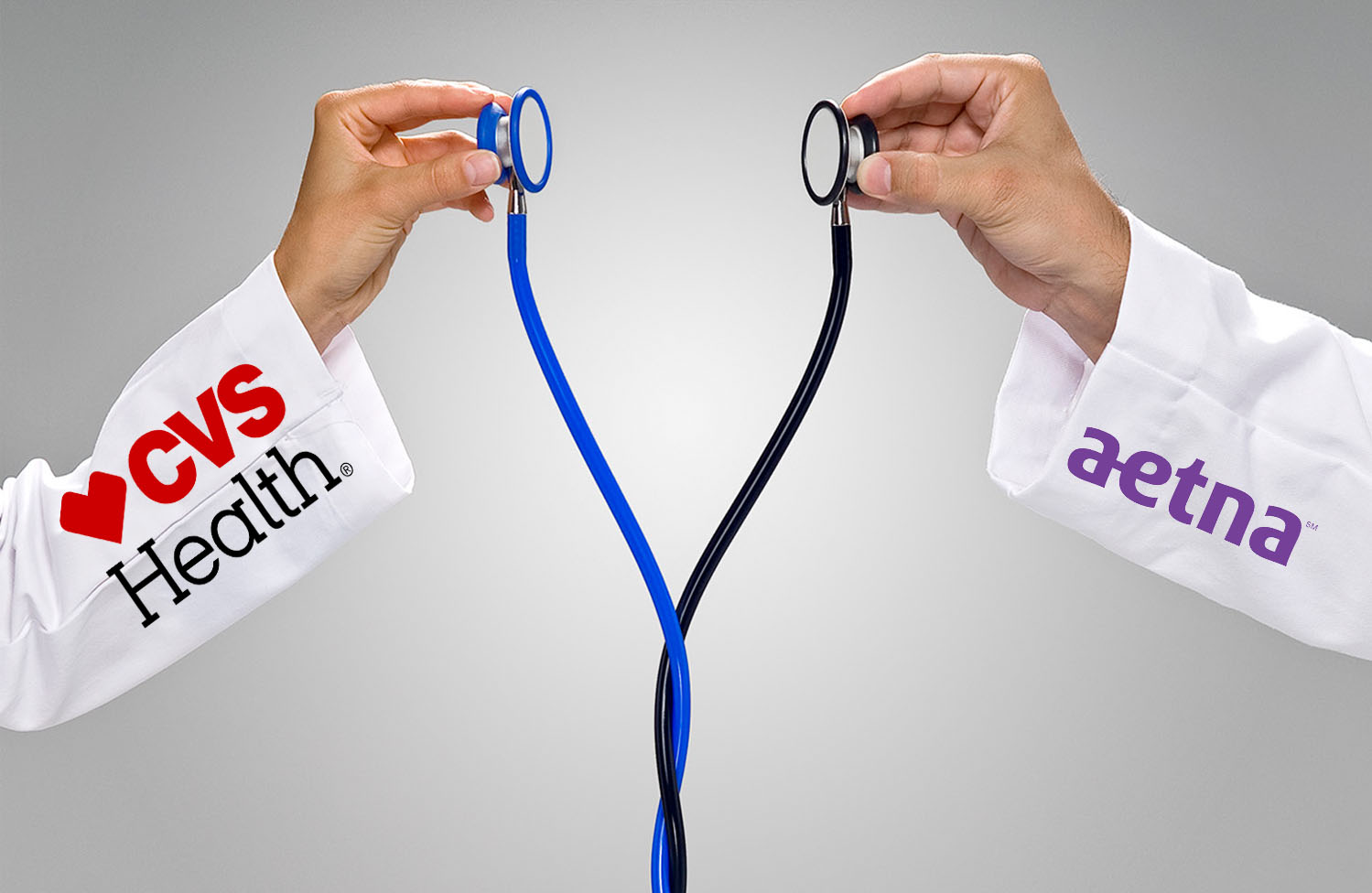By a show of hands, how many of you know that the three-letter abbreviation CVS used by CVS Health Corp (CVS), the company responsible for selling painkillers and birthday cards to millions of Americans every day, stands for Consumer Value Store? Don’t feel guilt or some sense of moral disillusionment, it’s really not your fault. What you should know is that as of Wednesday, CVS Health Corp (CVS). closed its $70 billion deal to buy health insurance giant Aetna Inc. (AET), after months of negotiations and approval-seeking from the federal government.
As it stands, Aetna (AET) is the nation’s third-largest health insurance company, providing care to over 22 million members across the country. According to CVS’s (CVS) official press release, the reasoning behind the merger was largely in part to increasing access and quality of health care for American consumers. Recent statistics indicate that roughly 16% of working-age Americans do not have health insurance. When the Affordable Care Act was signed into law in 2010, the Obama administration included an “individual mandate” that required nearly all Americans to get covered or pay a penalty, but, nevertheless, access to affordable health care is still a real issue.
CVS, (CVS) in their press release regarding the merger with Aetna (AET), hopes that “new products and services developed by the combined company will be broadly available to the health care marketplace, regardless of one’s insurer, pharmacy benefit manager (PBM) or pharmacy of choice.” As one of the nation’s largest pharmacy benefit management (PBM) companies, CVS, (CVS) which operates more than 10,000 stores nationwide, will potentially start producing and distributing lower cost options for pharmaceuticals as a result of the merger.
“By fully integrating Aetna’s medical information and analytics with CVS Health’s pharmacy data, we can develop new ways to engage consumers in their total health and wellness through personal contacts and deeper collaboration with their primary care physicians. As a result, we expect patients will benefit from earlier interventions and better-connected care, leading to improved health outcomes and lower medical costs.”
–Larry J. Merlo, President and Chief Executive Officer, CVS Health
In addition to new product opportunities, CVS Health (CVS) plans on furthering its successful “Project Health” screening events in partnership with Aetna’s “commitment to building healthier communities” by offering free preventive health screenings in low-income communities and other areas with poor access to quality preventative treatment.
Despite the fact that CVS’s (CVS) chief has lauded Wednesday as “the start of a new day in health care and transformative moment for the industry,” there are reasons to be vigilant of the potential ramifications of the $70 billion mergers between the largest pharmacy and one of the largest national health insurers. Steven Pearlstein, a columnist for the Washington Post, points out that in a typical “vertical merger” like the deal involving CVS (CVS) and Aetna (AET), two non-competing companies who join forces will be good for the market “on the theory that competition will force the newly merged company to pass most of the benefit of any increased efficiency to consumers.” However, this theory cannot be applied to the CVS/Aetna (AET) merger because both companies are dominant in their respective sectors, and neither sector is necessarily competitive.
In this case, the current scenario presents a very dangerous outcome for competitive health of the market. Pearlstein calls this a “horizontal consolidation” which results in no real competitive advantage for companies in the space, but three or four giant firms wise up to this notion and team up to regulate prices to their liking. Typically PBMS like CVS (CVS) has served as the middlemen of the prescription drug market between drug manufacturers and health care providers. The CVS/Aetna (AET) merger eliminates the need for a middleman and will allow Aetna to steer its members directly into CVS pharmacies for their prescription drug needs.
Pearlstein writes that the purpose of antitrust law is meant to prevent a situation exactly like what is taking place between CVS (CVS) and Aetna (AET) — “merging a dominant firm in one highly concentrated market with a dominant firm in an adjacent market in a way that allows the combined firm to use exclusive dealing and the lack of price transparency to increase its market power and drive independent competitors from the marketplace.”
Now don’t get me wrong, I am a firm believer in collaboration and the merging of companies to provide the best services for consumers, but the CVS/Aetna deal may causing more harm to the health care sector than it provides increased access and quality care to millions of Americans.





